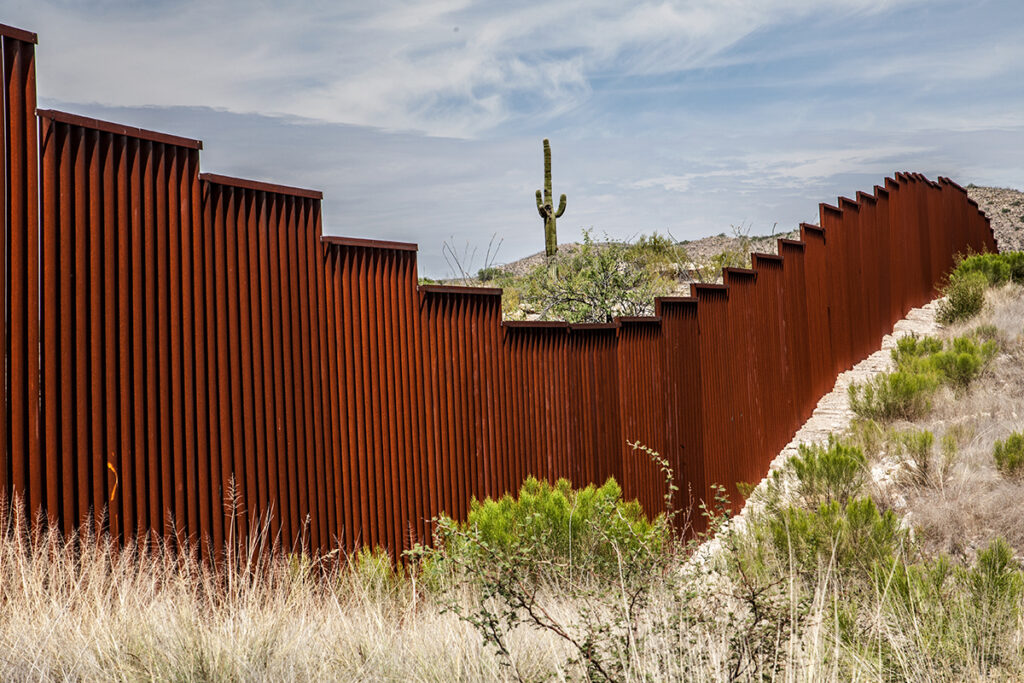As Donald Trump prepares to take office, his pledge to enforce the largest deportation operation in U.S. history is causing fear in immigrant communities while also deepening divisions among Latinos. From the sanctuary cities of the Midwest to the border regions of Texas, the impact of these policies is already taking shape. While some brace for a wave of deportations, others support stricter immigration measures, highlighting the complex perspectives within Latino communities.
Fear and Uncertainty in Chicago’s Latino Community
In Chicago, many undocumented immigrants and their families are preparing for the potential consequences of Trump’s policies. Lincoln United Methodist Church, a long-standing hub for pro-immigration activism in the city’s Latino community, has adjusted its services to adapt to the changing landscape. Spanish-language gatherings have been moved online due to fears that Immigration and Customs Enforcement (ICE) or anti-immigration activists could target them.
The looming threat of mass deportations has left many feeling vulnerable. Long-term undocumented residents who have worked and paid taxes for decades now fear being removed from the country they call home. Trump’s proposed actions include workplace raids and the potential elimination of policies that previously made churches off-limits for ICE operations. The anxiety is widespread, with community leaders and activists working to provide support and resources for those who may soon face deportation.
Latino Communities in Texas Express Different Views
While fear grips Chicago’s immigrant neighborhoods, the response in Texas’s Rio Grande Valley presents a stark contrast. In this region, which shares a border with Mexico, some Latino residents express support for Trump’s approach, believing that stricter enforcement is necessary. Concerns about illegal immigration in border communities often stem from personal experiences, including encounters with migrants on private property and incidents involving cartel activity.
Starr County, a predominantly Latino area that historically voted Democratic, shifted towards Trump in the 2024 election for the first time in over a century. This shift reflects a growing sentiment among some Latino voters who see border control as a priority. Many believe that immigration should be regulated and that the current system is being exploited. While there is general support for immigration, there is also frustration over illegal crossings and the strain they place on local communities.
Republican Efforts to Counter Sanctuary Cities
The divide over immigration extends beyond border communities and into major cities where local policies conflict with federal enforcement. Chicago, a self-declared sanctuary city, is now a key target for deportation efforts. Trump’s officials have identified the city as a primary focus for ICE operations, with plans to conduct widespread arrests of undocumented immigrants, particularly those with criminal records.
Since 2022, Republican governors in states like Texas and Florida have been sending migrants to sanctuary cities as a political response to immigration policies. Chicago’s leadership, including Mayor Brandon Johnson and Governor JB Pritzker, remains committed to protecting undocumented residents. However, there is internal debate, with some Latino lawmakers pushing for changes to sanctuary policies that would allow cooperation between local police and federal immigration authorities. Despite these efforts, progressive officials have blocked such measures, reinforcing the city’s stance on immigration.
Communities Prepare for the Impact of Mass Deportations
With deportations on the horizon, immigrant communities and advocacy groups are actively working to lessen the impact. Mexican consulates across the U.S. are working on a mobile app designed to alert family members and officials in the event of a detainment. The app, described as a “panic button,” aims to provide immediate support and legal assistance.
Churches and activist organizations are also mobilizing resources to help undocumented immigrants navigate the uncertain future. Legal experts are offering guidance on financial management and child custody arrangements in case of deportation. Second-generation immigrants are improving their Spanish skills to assist with legal translations and communication. The broader concern remains the potential separation of families, as many fear that children of deported individuals will end up in social services or face an uncertain future without their parents.
A Nation on Edge as Policies Take Shape
The reality of Trump’s immigration policies is setting in, with communities across the country responding in different ways. In Chicago, fear and uncertainty dominate the conversation, while in Texas, the focus is on enforcement and security. The political divide over immigration remains as strong as ever, with sanctuary cities and federal authorities at odds over how to proceed. As deportations begin, the effects will be felt in households, workplaces, and entire communities, shaping the national debate on immigration for years to come.


